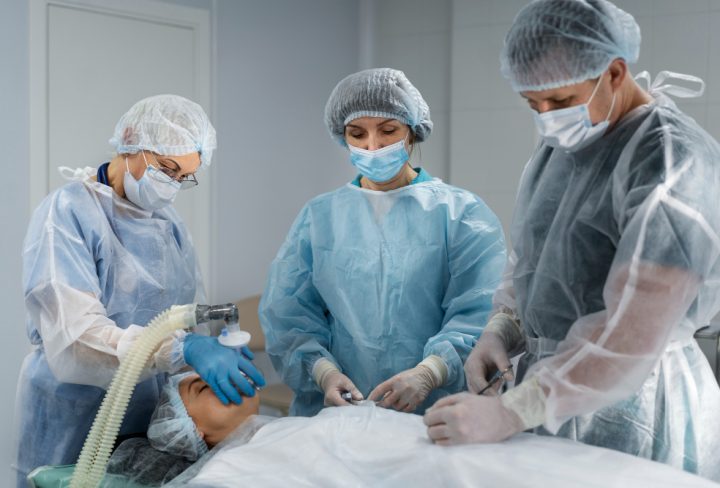General anesthesia complications can affect people after surgery. One of the most common issues is postoperative nausea and vomiting (PONV). This side effect can make recovery harder. While many people recover well from anesthesia, some may feel sick or vomit after waking up. In this blog, we will explain what general anesthesia is, discuss common complications, and focus on PONV. You will also learn about causes, symptoms, and how to prevent or treat this problem.
What Is General Anesthesia?
General anesthesia is a type of medicine that puts you into a deep sleep during surgery. Because of this, you do not feel pain or remember the procedure. Doctors use it for many types of surgeries, both big and small. Anesthesia is given through a mask or an IV. While you are asleep, your body is closely watched by a trained team. After surgery, the medicine wears off, and you slowly wake up.
Common Complications After General Anesthesia
Most people wake up from anesthesia without problems. However, some may have side effects. These are called general anesthesia complications. Common issues include:
Although these side effects are usually mild, they can be uncomfortable. In rare cases, more serious problems can happen, such as breathing trouble or allergic reactions. But, your medical team is trained to handle these quickly.
What Is Postoperative Nausea and Vomiting (PONV)?
Postoperative nausea and vomiting after anesthesia is a common side effect. PONV means feeling sick to your stomach or throwing up after surgery. It can happen soon after you wake up or even a few hours later. For some people, this feeling can last up to a day. PONV is not usually dangerous, but it can slow down your recovery and make you feel worse.
Causes and Risk Factors for PONV
Many things can cause PONV. Some people are more likely to get it than others. Common causes and risk factors include:
Additionally, children and young adults may have a higher risk. If you have had PONV before, tell your doctor before surgery. This helps them plan better care for you.
Symptoms and When to Seek Help
PONV symptoms are easy to spot. You may feel:
Most of the time, these symptoms go away on their own. However, if you cannot keep fluids down, feel very weak, or vomit for more than a day, seek medical help. Sometimes, too much vomiting can lead to dehydration or other problems.
Diagnosis and Monitoring of PONV
Doctors and nurses watch for signs of PONV after surgery. They may ask how you feel and check if you are eating or drinking well. If you have symptoms, they may give you medicine to help. In rare cases, blood tests or other checks may be needed if vomiting does not stop. Early treatment can make you feel better faster.
Prevention and Treatment Options
There are ways to prevent and treat PONV. Doctors often use a mix of steps, such as:
If you do get PONV, your care team can give you medicine to stop the nausea and vomiting. Sometimes, changing your position or breathing fresh air can help too. According to the World Health Organization and CDC, these steps are safe and effective for most people.
Tips for Reducing Your Risk
Although you cannot control every risk, you can take steps to lower your chance of PONV:
By working with your healthcare team, you can help prevent or manage anesthesia side effects.
In summary, general anesthesia complications like postoperative nausea and vomiting are common but manageable. If you have concerns about anesthesia or experience ongoing nausea after surgery, consult a healthcare professional for advice and support.

